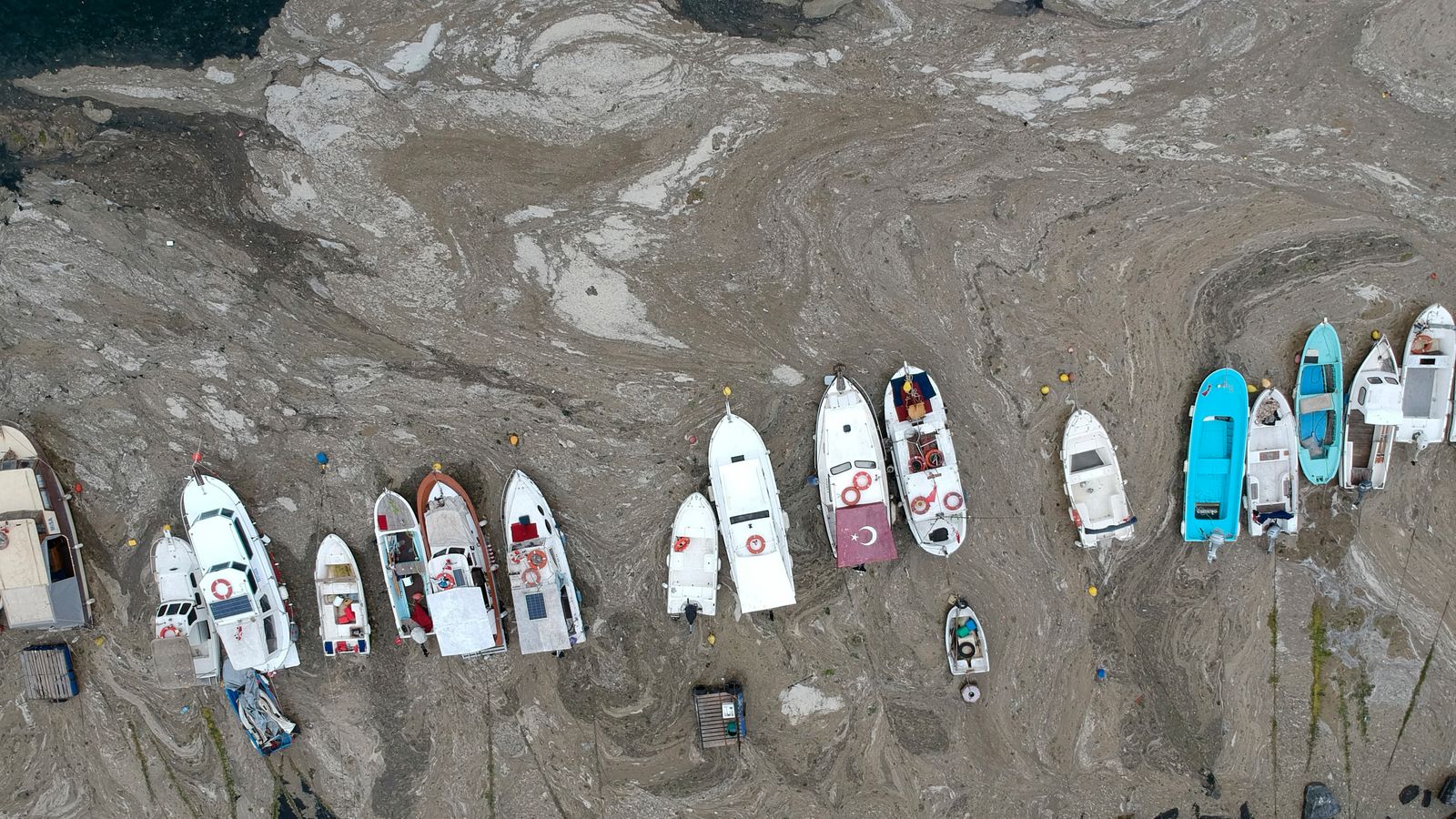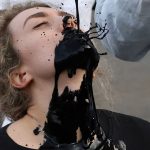Turkey’s environment minister has promised to defeat a plague of “sea snot” threatening the Sea of Marmara – but warns the disaster management plan could take up to three years.
Marine biologists and environmentalists have been alarmed by a huge mass of marine mucilage – a thick, slimy substance which has bloomed in Turkey‘s Marmara, as well as in the adjoining Black and Aegean Seas.
Harbours, shorelines and swathes of seawater have been blanketed by the viscous, greyish substance, some of which has also sunk below the waves, suffocating life on the seabed.
It was first found in Turkey in 2007 but has also been discovered in the Aegean Sea near Greece.
The recent outbreak along Turkey’s Sea of Marmara coast is believed to be the biggest in history and is causing chaos for local communities.
And now environment minister Murat Kurum has outlined a plan to rid the area of the blight.
“Hopefully, together we will protect our Marmara within the framework of a disaster management plan,” he said.
Speaking from a marine research vessel which has been taking samples of the slimy substance, he added: “We will take all the necessary steps – and within three years realise the projects that will save not only the present but also the future together.”
On Saturday, Turkish President Recep Tayyip Erdogan instructed the Ministry of Environment and Urbanisation to coordinate with relevant institutions, experts and universities to work together on the plan.
He said untreated waste dumped into the Marmara Sea and climate change had caused the sea snot bloom.
Marine experts agree. They say human waste and industrial pollution is choking Turkey’s seas.
Istanbul, Turkey’s largest city with some 16 million residents, factories and industrial hubs, borders the sea.
Mr Erdogan said teams are now inspecting waste water and solid waste facilities, along with other potential sources of pollution.
“We will save our seas from this mucilage calamity, leading with the Marmara Sea,” he said.
“We must take this step without delay.”






















